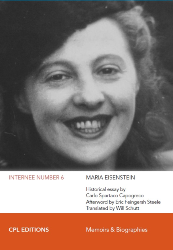In Vesper Stamper’s ambitious novel, twin brothers Rudi and Peter face intense conflict, both in their family and in postwar East Germany at large. Growing up in Berlin in 1961, right before the construction of the wall that will divide the city, they live under an oppressive regime that rigidly controls their lives. Peter questions the contradictions they are forced to accept, while Rudi is emotionally invested in believing that East Germany is an ideal people’s democracy, and West Germany, a fascist state. Their parents’ marriage is crumbling — compromised, like the East German nation, by their dishonesty about the past. The fifteen-year-old boys are constantly reminded by their mother that, as twins, they should find support in their special bond; but this repeated advice only serves to highlight how much they have grown apart. The level of competition between the brothers is near-biblical. Like Jacob and Esau, each is closer to one parent and often feels rejected by the other. Given the powerful structure of lies that define the East German state, the only choices one has are compliance or rebellion.
Peter is a gifted actor, and his academic success seems effortless. Rudi works hard and hopes for a future in the Communist bureaucracy. Their mother, Ilse, is emotionally unstable, while their father, Rudolf — a frustrated musician who earns a bare living tuning pianos — is a defeated man who has failed to come to terms with his past. Oma, the boys’ great-grandmother, is a cynical old woman whose experience of Germany’s recent history makes her skeptical of idealism. As Peter observes with frustration, “This family was clumsily thrown together, like they’d each somehow stumbled onto a stage and had to improvise a part.” Angular black and white pictures enhance the text’s impact. Although the family is not Jewish, the genocide perpetrated less than twenty years earlier is constantly present in their minds. Watching the Eichmann trial on television, they cautiously look back, avoiding the fact that the Nazi leader’s contorted defense reflects the attitude of ordinary Germans.
The official East German position is that their country has no trace of Nazism for which to atone; only the West bears responsibility. Although there is obvious evidence contradicting that position, Stamper draws a clear picture of how any challenge to it carries tremendous risk. An interesting secondary character is Charles, a Black American soldier who served in the war and is now stationed in postwar West Germany. He becomes a friend to Rudolf and a paternal figure to Rudi and Peter. His honesty about racism in the United States, and the dangers of failing to oppose corrupt authority, offer a distinct perspective.
Set against a background of stifling social conditions, Rudi and Peter not only grapple with those questions of identity that are brought on by adolescence, but they also must make fundamental decisions about integrity and truth. “Rudi believed in words, that they meant what people told him they should mean,” Stamper writes. Her novel is a convincing portrait of the conflict created when words and their meanings are dramatically at odds.
Emily Schneider writes about literature, feminism, and culture for Tablet, The Forward, The Horn Book, and other publications, and writes about children’s books on her blog. She has a Ph.D. in Romance Languages and Literatures.





